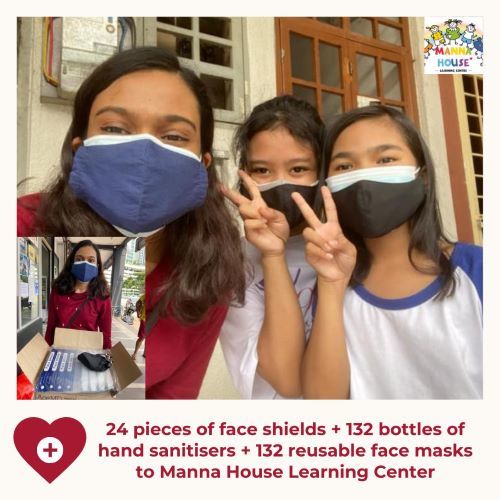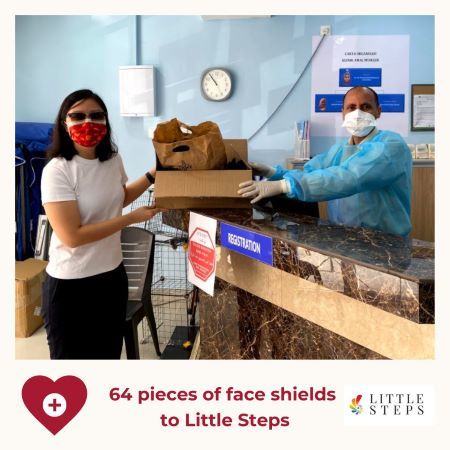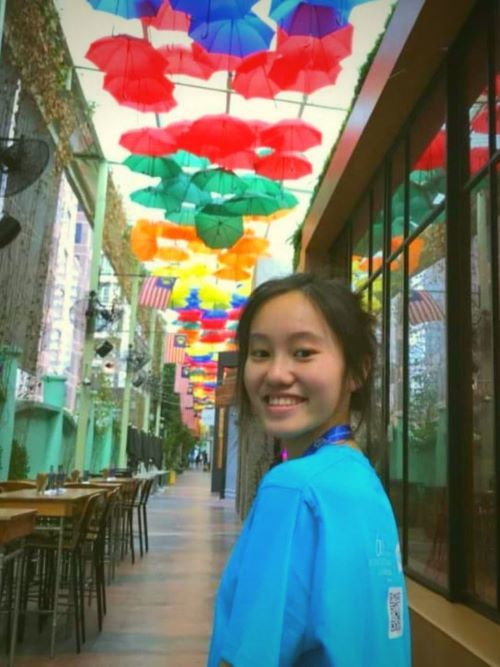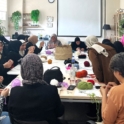Omar reflects on his experience participating in CEW.
STORIES
Alumna Helps Empower Vulnerable Groups During COVID

This article was originally posted on the YES Malaysia Alumni blog.
Ruolin Ang (YES 2017-2018, Malaysia, placed by AIFS in Westfield, PA) is now the Project Manager of the SERUM Initiative! We have reached out to her to learn more about her experience.
What is the SERUM Initiative?
Supplies to Empower the Rural, Urban-poor, and Marginalised (SERUM) Initiative is a social enterprise platform to empower underserved communities through impact-driven products. Founded during the pandemic to battle the outbreak of COVID-19, SERUM aims to provide hygiene kits, such as face masks and hand sanitizers, to underserved communities (refugees, urban poor, OKU, etc.). SERUM is expanding its impact to the post-COVID era as well by empowering the communities economically. We utilize the Buy & Impact model by selling impact-driven products made by the communities, where each purchase made will have a clear and transparent impact behind it. Currently, we are selling reusable face masks and handmade products via our eCommerce platform.
Regarding SERUM’s non-profit initiatives, we partner with youth organizations and passionate individuals on our monthly Fundraising From Home Program (FFH). We upskill the participants with fundraising skills. Then, they embark on a 2-week implementation to fundraise for our social initiatives. For every RM10 raised, we provide 1 reusable face mask and 1 bottle of 50ml hand sanitizer for those in need to ensure accessibility of essential hygiene supplies for all.

What is your role in the SERUM Initiative?
As a project manager, I ensure that our monthly Fundraising From Home Program program is properly planned and executed to meet our fundraising goals. Before a program can be launched, I secure partnerships with youth organizations and university lecturers who are interested in creating a positive impact with us. I manage the communication among fundraisers, program coordinators and our education partner, GivingHub. Additionally, having raised funds for SERUM in the past, I assist fundraisers in reaching their full potential by providing guidance and monitoring their progress.
Upon completion of a program, I evaluate its outcome and look for ways to improve future programs with the aim of reaching more communities in need. To date, there have been a total of 228 amazing fundraisers under my supervision, and they have collectively raised more than RM 72,000.
How did being a participant of the YES program inspire you to join SERUM Initiative?
During my exchange, I volunteered in a fundraiser with other exchange students in the region. We hosted a screening of a documentary, where proceeds were donated to the Rochester Refugee Resettlement Services.

From the documentary, “Human Flow”, I learned about the global refugee crisis and the plight of refugees in Malaysia, which reminded me of how privileged I am to live without fear and to have access to education, employment, and healthcare.
This is why I got involved with SERUM after learning that they are supporting refugees and families that are deeply affected by the pandemic. I think it is important that I help these communities to the best of my ability, especially when I am aware of their struggles.
Can you share the impact of SERUM Initiative to its stakeholders?
Since April 2020, SERUM has impacted 24,000 beneficiaries by providing 2470 L hand sanitizers, 408,750 disposable face masks and 4,675 reusable face masks to prevent the spread of COVID-19 among underserved communities in Malaysia. We have also empowered 3 refugee artisan communities economically through Buy & Impact. The artisans are a part of the ecosystem that provides hygiene supplies, which helps them generate income during the pandemic.
Over the past few months, SERUM has collaborated with 40 NGOs, including Tanma Foundation, Taylor’s Community, Majlis Belia Malaysia, Kechara Soup Kitchen Society, Impact Malaysia, and The Lost Food Project.





